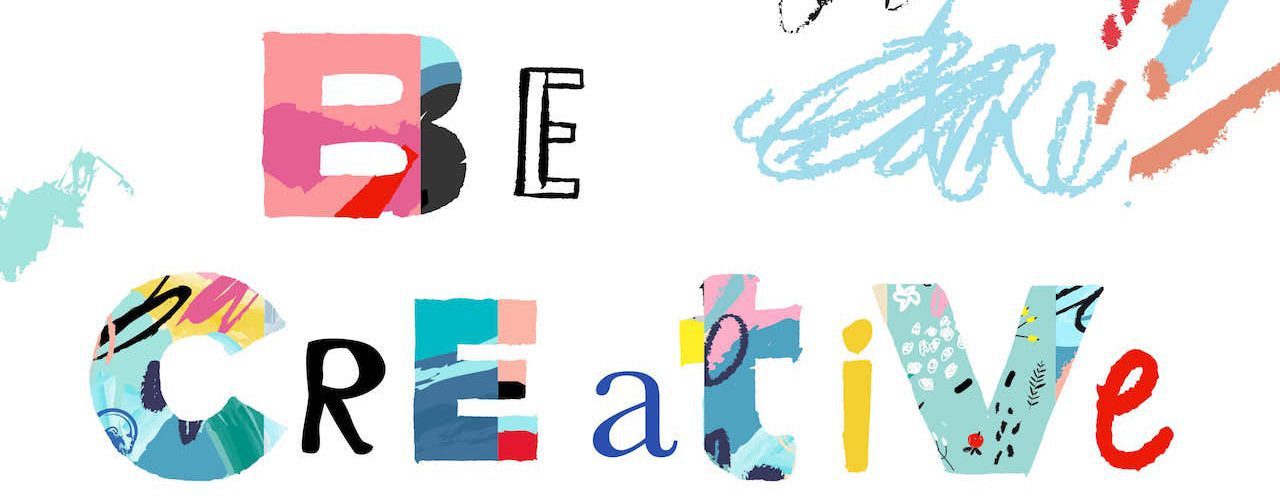0
You have 0 items in your cart

Imagine you have two jigsaw puzzles in front of you. One is easy and one is difficult. Which one would you choose? In fact, this simple question will tell you if you have a growth or fixed mindset. The fixed mindset will choose the simpler one of the two. It validates that you can solve the puzzle without any problems because you have the skills needed. The growth mindset, on the other hand, will choose the more difficult puzzle, seeing it as an opportunity to learn.
 Carol Dweck, a behavioral psychologist from Stanford, coined the terms growth mindset and fixed mindset. In 1988, she conducted a study that took a close look at the way we think, or what is called mindset. As time went on, Dweck found this mindset can contribute to success in rational capacities such as love and relationships as well as our intelligence and behaviors.
Carol Dweck, a behavioral psychologist from Stanford, coined the terms growth mindset and fixed mindset. In 1988, she conducted a study that took a close look at the way we think, or what is called mindset. As time went on, Dweck found this mindset can contribute to success in rational capacities such as love and relationships as well as our intelligence and behaviors.
Dweck found people with a fixed mindset assume one’s character and abilities are unchangeable. This includes intelligence and its inability to be changed or developed due to their attitude towards failure. Most of the time, fixed mindset individuals believe talent and abilities alone create success, which is why they avoid new challenges. They see this as a giveaway for their flaws or inadequacies.
 Growth mindset individuals believe character and abilities can develop through dedication and practice. This way of thinking creates a love for learning, which in turn erases the need for approval or confirmation. Those needs are replaced with a desire for new insight. People with this mindset will often see failure as an opportunity to succeed and develop.
Growth mindset individuals believe character and abilities can develop through dedication and practice. This way of thinking creates a love for learning, which in turn erases the need for approval or confirmation. Those needs are replaced with a desire for new insight. People with this mindset will often see failure as an opportunity to succeed and develop.
Part of Dweck’s research was to see where this mindset development begins. Mindset doesn’t only affect adults, but children as well. Dweck, as part of her study, used the example of the jigsaw from above. The development of a mindset starts at an early stage in life, as young as 4 years old. Children were given the option of solving an easy puzzle or a more difficult one. All of the children conformed to either a fixed mindset or a growth mindset. Some decided to affirm how smart they were by staying on the safe side and doing the easy puzzle. Others saw it as an opportunity to learn and chose a more challenging puzzle. One of the 7th grade students in the study was able to capture the idea of mindset perfectly:
I think intelligence is something you have to work for. Most kids, if they’re not sure of a answer, will not raise their hand to answer the question. But what I usually do is I raise my hand, because if I’m wrong, then my mistake will be corrected. Just by doing that, I’m increasing my intelligence.
Once Dweck’s research surfaced, many people were interested to know if a group can have a mindset of its own. The answer is yes!
Think of it this way. It doesn’t take a long time to tell when someone has a bad attitude about something. You might be able to tell based on their posture, lack of words, excess use of words; but you know it right away. This always affects the atmosphere. Sometimes you avoid the person or you might challenge them.
 People with a fixed mindset often act according to fear, the fear of failing. They might choose the easier option because they know they’ll get it right. They want confirmation their skills can get the job done. But the easier option isn’t always the option that will lead you to success. What if a company bases all of their decisions on what’s the easiest rather than what will give them the knowledge to succeed? A company or group of people with a growth mindset would choose an option that looks like a learning opportunity, regardless of whether it works or not. This is what makes a company successful: embracing risk! Part of success is venturing into the unknown and finding out what you and your company can achieve.
People with a fixed mindset often act according to fear, the fear of failing. They might choose the easier option because they know they’ll get it right. They want confirmation their skills can get the job done. But the easier option isn’t always the option that will lead you to success. What if a company bases all of their decisions on what’s the easiest rather than what will give them the knowledge to succeed? A company or group of people with a growth mindset would choose an option that looks like a learning opportunity, regardless of whether it works or not. This is what makes a company successful: embracing risk! Part of success is venturing into the unknown and finding out what you and your company can achieve.

You guessed it; your mindset affects this too. Part of Dweck’s study focused on whether or not praise affects your mindset and ultimately, your productivity. Dweck had asked a group of adults difficult questions. What she found was the people with a fixed mindset were discouraged after hearing their answer was wrong. They immediately saw it as a failure and didn’t even bother hearing the correct answer. In contrast, the growth mindset group was attentive and eager to hear the correct answer.
So what does this mean for your business? If your organization has a fixed mindset, eventually the work and quality will plateau. Constant praise will ultimately have a negative effect on your business and productivity. If your employee constantly hears “You’re a natural!” or “This is perfect!” their work will stay the same. They won’t feel the need to improve or strive for something better because of the confirmation they receive. They’ll turn away from challenges in fear of exposing flaws. As you can imagine, in the long run, your company will be at a standstill. You won’t be generating new innovative ideas.
Most of the time, the most successful businesses became successful because they took a chance or risk. Your company and employees can’t move forward in this direction if it has a fixed mindset.
Instead, try to focus on just being present and acknowledging their effort. Even if you tell someone something as simple as “Thank you,” it goes a long way. They will feel like their effort didn’t go to waste and that it was beneficial, no matter the final result. Your employees will be able to focus on this rather than just the skills needed. This will make people excited to take on a new challenge.
 Dweck made an interesting discovery in her research and that is, our mindsets have an impact on our friendships and relationships. A fixed mindset forces us to score and evaluate our friends, coworkers and everyone else around us. If you score and assign blame, you are assigning a trait or a flaw to that person.You then start to focus on the flaw, which in your mind develops into the person. It’s a downward spiral of negative emotions. Dweck pointed out that, yes, relationships of all kinds require work but what is a relationship without setbacks? You can’t have a perfect relationship and what Dweck found was people who have a fixed mindset, are waiting for that to appear. When it doesn’t appear, they start the blame game. A person with a growth mindset will accept the setback and find a way to improve and develop without assigning blame. They see it as a way to improve themselves as well.
Dweck made an interesting discovery in her research and that is, our mindsets have an impact on our friendships and relationships. A fixed mindset forces us to score and evaluate our friends, coworkers and everyone else around us. If you score and assign blame, you are assigning a trait or a flaw to that person.You then start to focus on the flaw, which in your mind develops into the person. It’s a downward spiral of negative emotions. Dweck pointed out that, yes, relationships of all kinds require work but what is a relationship without setbacks? You can’t have a perfect relationship and what Dweck found was people who have a fixed mindset, are waiting for that to appear. When it doesn’t appear, they start the blame game. A person with a growth mindset will accept the setback and find a way to improve and develop without assigning blame. They see it as a way to improve themselves as well.
A fixed mindset will negatively affect the work environment and relationships you have with coworkers and friends especially if the goal is to become a team rather than a working group. Organisations with a fixed mindset have shown they tend to operate individually rather than as a team. The fixed mindset caused them to be afraid of failing, which in turn required them to keep secrets or cut corners in order to get ahead. With this kind of atmosphere, it is impossible to work together as a team. If you are a team with a growth mindset, there is the tendency to have more honest communication.
As you can imagine, it starts with the supervisor. If you have a fixed mindset supervisor, it’s next to impossible for the staff to work as a team. In fact, most of the time when this happens, there is a higher chance of some individuals being seen as more valuable than others. But, if you have a supervisor with a growth mindset, it’s a completely different story. These supervisors are more likely to have a positive view on their employees. They see everyone for who they are, rather than another employee. Once this happens, your organization can focus on growing as a team.

Many businesses, when hiring, look at the credentials of the applicant rather than their attitude. What was their graduation? What have they accomplished? How many hours did they work at their previous job? Making a decision based on credentials will set back a company. It may not be noticed at first, but eventually the work will plateau due to their lack of interest in learning.

Someone who is capable and has the potential to grow. Over time their work will be more valuable than the person who has all of the right credentials. This person will put in an effort to go the extra mile because of the passion for learning. Attitude should be everything. Once you get the right attitude, you can teach them the skills they need. Not surprisingly, because of attitude and mindset, one person can bring an entire organization down. Google is currently making this shift. They’re starting to hire more people who might not necessarily have the college degree but have proved to be capable independent learners.
You can have all of the right credentials but if you aren’t excited to learn, that will show in the work. Instead, people should be excited to show up to work! There should be a passion for learning instead of a need of approval. If you hire an applicant with a growth mindset, they will constantly be striving to figure out how to make your business better. You will get the person who values growth and success. They know perfection can’t be achieved, which is why they will respond to challenges with an open mind. But if you hire an applicant with a fixed mindset, they will become stable. They’ll look for the easiest and safest way to achieve the task, which might not be innovative and it might not even benefit your business.
Your company shouldn’t be worried about finding people. Emphasise the importance of continuous learning. It will attract the people with a growth mindset. This candidate will be a risk taker and someone who embraces mistakes and failures. In other words, this is the person that will be a key to innovation.

The issue with a fixed mindset is you don’t want to be creative or innovative. You already have the skills and abilities needed to complete the task, so why take a chance if it could result in a mistake? The fixed mindset makes us fearful of shame. It tells us that we failed. It is human nature to avoid shame-inducing situations but that doesn’t mean it you should avoid innovation and creativity. In contrast, people who have a growth mindset will embrace the opportunity to be innovative. They know they can develop and stretch their ideas to make them more unique and creative even if it means they have to try an idea more than once.
Not only does the mindset affect an individual’s creativity, it also affects a company’s creativity. Companies who have an “edge” are more likely to be successful when it comes to innovation. They possess the growth mindset that is needed to achieve a successful innovative idea.
So, what do some of these companies do to promote a growth mindset when creating innovative plans? The easiest thing to do is to channel your inner child. You have to use your imagination. Remember when you were a kid and anything seemed possible? If you wanted to go to the moon, you grabbed a cardboard box and off you went! It’s the same concept. Anything should be possible when you’re trying to come up with a new idea. People with a growth mindset won’t get discouraged if a plan doesn’t work. Instead, they figure out a new way to solve the problem. For a person with a growth mindset, the possibilities are endless.
Do people with this [growth] mindset believe they can be anything, that anyone with proper motivation or education can become Einstein or Beethoven? No, but they believe that a person’s true potential is unknown (and unknowable); that it’s impossible to foresee what can be accomplished with years of passion, toil and training.
 Everyone has an inner voice. When faced with a problem, you might catch yourself questioning if you can do it. In order to change your mindset, you have to become aware of this voice and recognize it. If you have a fixed mindset you’ll catch yourself saying “It’s my fault” when something doesn’t work out. You’ll see it as a failure whereas someone with a growth mindset will look for silver linings and ask themselves “How can I make this work?”
Everyone has an inner voice. When faced with a problem, you might catch yourself questioning if you can do it. In order to change your mindset, you have to become aware of this voice and recognize it. If you have a fixed mindset you’ll catch yourself saying “It’s my fault” when something doesn’t work out. You’ll see it as a failure whereas someone with a growth mindset will look for silver linings and ask themselves “How can I make this work?”
Once you become aware of the voice, you must recognize you have a choice. Whether or not you want to interpret feedback negatively or not is your own choice. With a growth mindset, you can see it as an opportunity to grow and learn. Each challenge should be exciting because it gives you the opportunity to develop your skills. But if you have a fixed mindset, you will interpret it as a failure. Whether it’s feedback or when you’re approaching a new challenge, you have to learn how to talk back with a growth mindset. Once you learn to do that, the last step is to take the growth mindset action.
The most important thing to remember: believe you can change. The growth mindset is based on believing you can change, regardless of the challenge or feedback. Not noticing this will put you into a fixed mindset.
Without a doubt, mindset affects our actions and behaviors. How we respond to feedback and challenges are based on the mindset we have: fixed or growth. Being able to understand the impact it has on a business is essential. Once your business achieves a growth mindset, you are on your way to success.
Once your mindset changes, everything on the outside will change along with it.
This Privacy Policy describes how SmartMinds Enterprise OÜ (“SmartMinds”, “we”, “us” or “our”) handles information about yourself that you may provide us with through your use of the Site or Service (“Personal Information”) and should be read along with our Terms of Use posted here, and all other operating rules and additional terms and conditions published on our Site.
SmartMinds is committed to keeping your information secure and managing it in accordance with our legal responsibilities under privacy and data protection laws where we operate. SmartMinds uses your Personal Information only in accordance with this Privacy Policy and Applicable Law. SmartMinds does not sell your Personal Information to third parties. Any capitalized terms not defined in this Privacy Policy are defined in the Terms of Use.
We employ the use of cookies. By using SmartMinds‘s website you consent to the use of cookies in accordance with SmartMinds’s privacy policy.
Most of the modern day interactive web sites use cookies to enable us to retrieve user details for each visit. Cookies are used in some areas of our site to enable the functionality of this area and ease of use for those people visiting. Some of our affiliate / advertising partners may also use cookies.
Unless otherwise stated, SmartMinds and/or it’s licensors own the intellectual property rights for all material on SmartMinds All intellectual property rights are reserved. You may view and/or print pages from https://smartminds.one for your own personal use subject to restrictions set in these terms and conditions.
You must not:
We will approve link requests from these organisations if we determine that: (a) the link would not reflect unfavourably on us or our accredited businesses (for example, trade associations or other organisations representing inherently suspect types of business, such as work-at-home opportunities, shall not be allowed to link); (b)the organisation does not have an unsatisfactory record with us; (c) the benefit to us from the visibility associated with the hyperlink outweighs the absence of SmartMinds; and (d) where the link is in the context of general resource information or is otherwise consistent with editorial content in a newsletter or similar product furthering the mission of the organisation.
These organisations may link to our home page, to publications or to other Web site information so long as the link: (a) is not in any way misleading; (b) does not falsely imply sponsorship, endorsement or approval of the linking party and its products or services; and (c) fits within the context of the linking party’s site.
If you are among the organizations listed in paragraph 2 above and are interested in linking to our website, you must notify us by sending an e-mail to Please include your name, your organisation name, contact information (such as a phone number and/or e-mail address) as well as the URL of your site, a list of any URLs from which you intend to link to our Web site, and a list of the URL(s) on our site to which you would like to link. Allow 2-3 weeks for a response.
Approved organizations may hyperlink to our Web site as follows:
No use of (name)’s logo or other artwork will be allowed for linking absent a trademark license agreement.
Without prior approval and express written permission, you may not create frames around our Web pages or use other techniques that alter in any way the visual presentation or appearance of our Web site.
We shall have no responsibility or liability for any content appearing on your Web site. You agree to indemnify and defend us against all claims arising out of or based upon your Website. No link(s) may appear on any page on your Web site or within any context containing content or materials that may be interpreted as libelous, obscene or criminal, or which infringes, otherwise violates, or advocates the infringement or other violation of, any third party rights.
We reserve the right at any time and in its sole discretion to request that you remove all links or any particular link to our Web site. You agree to immediately remove all links to our Web site upon such request. We also reserve the right to amend these terms and conditions and its linking policy at any time. By continuing to link to our Web site, you agree to be bound to and abide by these linking terms and conditions.
If you find any link on our Web site or any linked web site objectionable for any reason, you may contact us about this. We will consider requests to remove links but will have no obligation to do so or to respond directly to you.
Whilst we endeavour to ensure that the information on this website is correct, we do not warrant its completeness or accuracy; nor do we commit to ensuring that the website remains available or that the material on the website is kept up to date.
We have a 30-day Money Back Guarantee when purchasing Realized Mind, all we ask if that within the 30 days to complete the learning experience and if you truly feel you did not receive any value from the experience we are happy to refund your payment and close your account.
To the maximum extent permitted by applicable law, we exclude all representations, warranties and conditions relating to our website and the use of this website (including, without limitation, any warranties implied by law in respect of satisfactory quality, fitness for purpose and/or the use of reasonable care and skill). Nothing in this disclaimer will:
The limitations and exclusions of liability set out in this Section and elsewhere in this disclaimer: (a) are subject to the preceding paragraph; and (b) govern all liabilities arising under the disclaimer or in relation to the subject matter of this disclaimer, including liabilities arising in contract, in tort (including negligence) and for breach of statutory duty.
To the extent that the website and the information and services on the website are provided free of charge, we will not be liable for any loss or damage of any nature.
